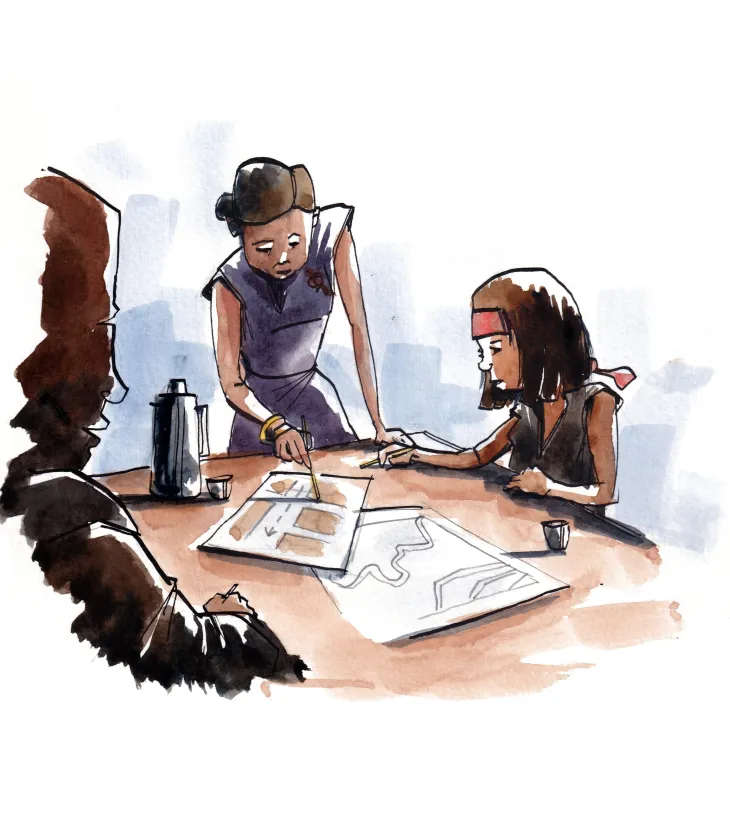In Part 3 of a 3-part series by Real Stories Not Tales (RSNT), Khin Thandar (pseudonym) tells her story post-coup that highlights a different reality and involvement than the rest of the country.
Khin Thandar comes from a small village in Rakhine State. She is actively involved with a number of Arakan civil society organizations and youth groups. She was interviewed on May 2.
What I feel sad about though is that most young people in Myanmar do not have the opportunity to study at all at the moment—whether online or offline—which means they are basically losing their future.
I was in Yangon when the coup happened. I had a lot of missed calls from my friends and activists I work with that night, and when I finally answered one at around 4:30 a.m., I found out there had been a military coup. Actually, I wasn’t that shocked. I had suspected the coup would happen. My first thought was that, based on our experience in Rakhine State, people needed to prepare for an internet shutdown and for not being able to communicate with their loved ones. So, I began to calmly spread this message with my network.
In contrast to many of my friends, I never really thought of going out into the streets to protest against the coup. You know, while people in Yangon and NLD supporters—mostly from the Bamar majority—were experiencing the so-called ‘democratic transition’ in recent years, we in Rakhine State continued to live and suffer under a military dictatorship. After the coup, these very same groups began calling for unity of all of Myanmar, but where were they when our ethnic people were dying in communal and armed conflicts? It is unfair and very painful. Actually, many people in Rakhine State feel as much distrust and even hatred towards the Bamar majority as they do towards the military.
Because of this, I felt a little out of place in Yangon after the coup, so I decided to go back to my home state. When I arrived, I met with some youth who were thinking of organizing a protest. We discussed it for a while, especially the high risk of getting arrested or even killed since the military presence in Rakhine State is much bigger than in Yangon. We asked ourselves: Who is it exactly we would be protesting for? And do we deserve to get jailed or killed for that? In the end, we decided against it. That is why Rakhine State is ‘silent’ now: we don’t talk about the military, and there is no CDM here.
What affected my life post-coup the most have been the progressive internet shutdowns. I had to cancel many of my plans, like an online civic education course for university students that I had been preparing together with some of my seniors. I was also unable to move abroad for my master’s studies as I had originally planned since my flight got cancelled in part due to the coup here and in part due to a Covid-19 outbreak over there. Luckily, I can study online, but I’ve had to move a couple of times in order to secure a stable internet connection. What I feel sad about though is that most young people in Myanmar do not have the opportunity to study at all at the moment—whether online or offline—which means they are basically losing their future.

Of course, the coup has also affected me and everyone around me psychologically. The constant stream of bad news is heart-breaking. When I get too stressed, I spend time alone, go for walks on the beach, listen to music, or exercise. Sometimes, I write down my thoughts and feelings about what’s going on in the country.
In my family there are different opinions on the current events, so it has become a very sensitive topic for us. For the first few weeks after the coup, we couldn’t even discuss it. I experienced something similar with my personal network as well. First, I was sharing my opinions about the political situation very openly, both online and offline. But then this led to fights with friends and other activists, and people began accusing me of being selfish. So in the end, I decided to stay silent.
I feel like everyone wants to get media attention nowadays, but I would say that the world needs to listen to the unheard voices in Myanmar before it overgeneralizes the situation in the country. I’m personally worried about my state, because in contrast to the past when there was a lot of discussion, Rakhine State is now silent. It feels scary and I worry there will be more fighting in the future.
Real Stories Not Tales (RSNT) is a dedicated team in and out of Myanmar that aims to bring awareness to the reality of young people’s lives since the Myanmar military staged a coup on February 1st, 2021. Stories are collected through interviews with each protagonist by the team, either in Burmese or in English. Each character is drawn by a professional illustrator bringing a visual context to the story. The RSNT report also proposes some tips on how it is possible to support Myanmar these days. They are pleased to share selections from their first report and are now in the process of collecting more stories all around the country.